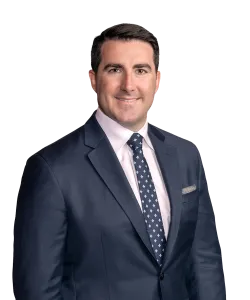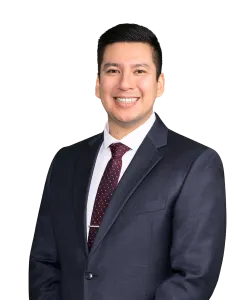Brothers Convicted in $100 Million HIV Drug Fraud Scheme
Headlines that Matter for Companies and Executives in Regulated Industries
Brothers Convicted in $100 Million HIV Drug Fraud Scheme
On October 29, a federal jury in Fort Lauderdale, Florida, convicted Maryland brothers Patrick and Charles Boyd of orchestrating a scheme to distribute roughly $100 million in misbranded HIV medications through their Miami-based wholesaler, Safe Chain Solutions LLC, relying on fake “T3 pedigree” certificates to mask the drugs’ black-market origins.
Following two days of deliberations, jurors found each brother guilty on seven counts — including conspiracy to introduce adulterated or misbranded drugs with intent to defraud, conspiracy to commit wire fraud, and conspiracy to traffic in medical products with false documentation — while acquitting each on one standalone count of wire fraud. Per the government, the brothers partnered with co-conspirator Adam Brosius, who became a Safe Chain partner and supplied medications acquired via an illegal buyback pipeline from existing HIV patients. The products allegedly arrived in “beat up” boxes, were relabeled to evade internal compliance scrutiny, and were then distributed to pharmacies for sale to patients. The government argued that the defendants knowingly used falsified T3s — documents meant to authenticate a drug’s full transaction history from the pharmaceutical manufacturer — to present the inventory as legitimate.
Defense counsel argued that the Boyds were misled by Brosius, whom they characterized as a “wolf in sheep’s clothing” who lied about sourcing from pharmacies closing during the COVID-19 pandemic and concealed his own criminal exposure. Defense counsel further suggested that major pharmaceutical companies knew about Safe Chain’s inventory issues in 2020 yet withheld that information to use it against Safe Chain and eventually drive them out of the market.
Brosius pleaded guilty in April to conspiracy to commit wire fraud and awaits sentencing, with separate proceedings also pending in New Jersey. Sentencing for the Boyds is set for January 20, 2026.
The case is United States v. Brosius, et al., No. 1:24-cr-20255 (S.D. Fl.).
Whistleblower Doctor Testifies at Trial Against Novo Nordisk
During trial for a whistleblower suit against Novo Nordisk, former clinical development physician Jamie Siegel, who is also the relator in the suit, testified that the company pushed tactics she viewed as improper to expand sales of its hemophilia medicine, NovoSeven. For example, Dr. Siegel stated that she felt pressured to leverage contacts to promote unapproved, prophylactic use. She further critiqued the sales force’s practice of internally distributing “trading cards” profiling key hematologists to cultivate loyalty.
Dr. Siegel stated that some doctors were already prescribing NovoSeven prophylactically, or recommending high doses, despite no US Food and Drug Administration approval or robust evidence those practices improved patient outcomes. Dr. Siegel noted that her proposed dose-escalation study was rejected by the company, and her warnings regarding risks such as blood clots were downplayed.
Per the complaint, from 2005 to 2015, Novo Nordisk provided payments and other benefits to physicians, patients, and families that allegedly induced off-label and high-dose prescribing patterns, defrauding Washington’s Medicaid program of tens of millions of dollars. Novo Nordisk denies any wrongdoing, arguing that the challenged conduct reflects legitimate patient and community support and that state officials are not qualified to second-guess physicians’ treatment decisions.
On cross-examination, defense counsel highlighted Dr. Siegel’s own pre-employment prescription of NovoSeven before a physical therapy session. While Dr. Siegel acknowledged that use was not on-label, she stated that it was not “prophylaxis,” distinguishing prevention of spontaneous bleeds from anticipated bleeding tied to post-surgical therapy. Dr. Siegel denied plotting a lawsuit in advance and stated that she retained work materials to document her internal objections.
The case is projected for a three-week trial.
The case is Jamie Siegel, et al. v. Novo Nordisk Inc., No. 3:23-cv-05459 (W.D. Wash.).
Trial of Former CFO Charged With Wire Fraud Begins in Washington State
The trial of former Fabric Inc. CFO Nevin Shetty kicked off on October 27 with federal prosecutors and defense counsel presenting opening arguments to the jury. The federal government has charged Shetty with four counts of wire fraud for allegedly diverting $35 million of company funds into his own fintech venture, HighTower Treasury Corp. Prosecutors allege he then invested those funds in a cryptocurrency platform that subsequently collapsed.
The government alleges that Shetty secretly transferred $35 million from Fabric — contrary to board instructions to place excess cash in conservative bank treasury accounts — into HighTower after learning he would be removed as CFO in 2022. Per the indictment, Shetty had previously registered Hightower for an account with Circle, a financial technology company, which allows deposits to be held in a cryptocurrency called USD Coin, which is a “stablecoin” that can be tied to the value of fiat currencies.
The indictment further states that once Shetty transferred funds to Circle, he then invested it in two ways. First, Shetty acquired a stablecoin called TerraUSD and deposited approximately $28.8 million with it. Second, Shetty used over eight million TerraUSD to acquire synthetic assets through a protocol called Mirror, which allowed investors holding TerraUSD to purchase digital assets that tracked the prices of other assets.
The government alleges that, when members of Fabric’s finance team discovered the HighTower account, Shetty acknowledged its existence but concealed the nature of the investments and his “self-dealing.” The government additionally alleges that Shetty made numerous misstatements on HighTower’s website regarding the yield on investment offerings, price volatility, and the fact that HighTower was neither a bank account nor financial institution. Finally, prosecutors allege that Shetty planned to enrich himself at Fabric’s expense, and failed to inform Fabric’s other corporate officers and board members when Hightower’s investments began to decline. Per the prosecutors, TerraUSD collapsed within weeks, rendering the investment largely worthless.
Trial is expected to last eight days.
The case is United States v. Shetty, No. 2:23-cr-00084 (W.D. Wash.).
Federal Court Quashes DOJ Subpoena Targeting Gender-Affirming Care Provider
On October 27, the US District Court for the Western District of Washington granted a motion to quash a US Department of Justice (DOJ) administrative subpoena served on QueerDoc, PLLC, a telehealth provider of gender-affirming care (GAC). The court found that the DOJ’s subpoena was issued for an improper purpose, namely to pressure providers to cease offering GAC, which constituted an abuse of the DOJ’s investigative authority.
We previously covered a similar challenge to a DOJ subpoena requesting extensive records regarding GAC from Boston Children’s Hospital here.
Like the subpoena issued against Boston Children’s Hospital, the DOJ served QueerDoc with an administrative subpoena on June 11, seeking extensive records, including personnel files, billing and coding documents, communications with pharmaceutical manufacturers, and detailed patient information for all minors prescribed puberty blockers or hormone therapy since January 2020. The subpoena purported to aid the DOJ in its investigations of potential False Claims Act (FCA) violations and potential Food, Drug, and Cosmetic Act (FDCA) violations related to off-label use of puberty blockers and hormone therapy.
In quashing the DOJ’s subpoena, the Washington federal court noted the “subpoena’s pretextual nature” in light of the Trump Administration’s various executive orders declaring an “end” to GAC and Attorney General Pamela Bondi’s memorandum directing DOJ prosecutors to use administrative subpoenas to providers of GAC to hold them “accountable.” The DOJ issued its administrative subpoena to QueerDoc the day after the DOJ’s Civil Division issued its memorandum. The “mismatch between DOJ’s stated investigation” and QueerDoc’s operations, combined with the “facially overbroad” scope of documents requested, revealed that the DOJ issued the subpoena for a purpose other than a legitimate investigation into FCA or FDCA wrongdoing.
At the same time, the court denied QueerDoc’s motion to seal, citing the presumption for public access to judicial proceedings. The court did rule, however, that any future filings may be partially redacted to protect specific patient and provider identifying information.
The case is QueerDoc PLLC v. US Department of Justice, No. 2:25-mc-00042 (W.D. Wash.).
Texas Supreme Court Denies Novartis Bid to Review Qui Tam Constitutionality Challenge
On October 24, the Texas Supreme Court declined to hear Novartis Pharmaceuticals Corp.’s challenge to the constitutionality of the Texas Health Care Program Fraud Prevention Act’s qui tam provision, while two members of the court cautioned that the issue cannot be avoided indefinitely and should be addressed after the Fifteenth Court of Appeals, the new statewide appellate court, weighs in.
Relator Health Selection Group LLC (HSG) alleges that Novartis orchestrated fraudulent marketing practices that caused Texas Medicaid to improperly pay out hundreds of millions of dollars. Per Novartis’ briefing, the relator’s claims target the company’s nurse educator and reimbursement support programs, which were designed to educate patients and assist with coverage for certain prescriptions. Novartis denies the allegations, focusing its challenge on constitutional defects in the qui tam mechanism and the relator’s purported lack of a judicially cognizable injury.
Novartis’ petition contended the qui tam framework violates the Texas Constitution, as it permits private parties to prosecute claims that the Constitution assigns to the attorney general, district attorneys, and county attorneys, raising separation of powers concerns. Novartis additionally argued that HSG lacks standing because it suffered no personal injury from the alleged conduct, depriving the courts of subject-matter jurisdiction.
By deferring review, the Texas Supreme Court has effectively directed the parties to proceed before the Fifteenth Court of Appeals, whose written decision could frame the constitutional questions for eventual high court consideration. The justices emphasized that if the statute is indeed constitutionally infirm in either respect identified by Novartis, the legislature needs timely, authoritative guidance from a statewide court.
The case is In Re Novartis Pharmaceuticals Corporation, No. 24-0239 (Texas Supreme Court).
Contacts
- Related Industries
- Related Practices







